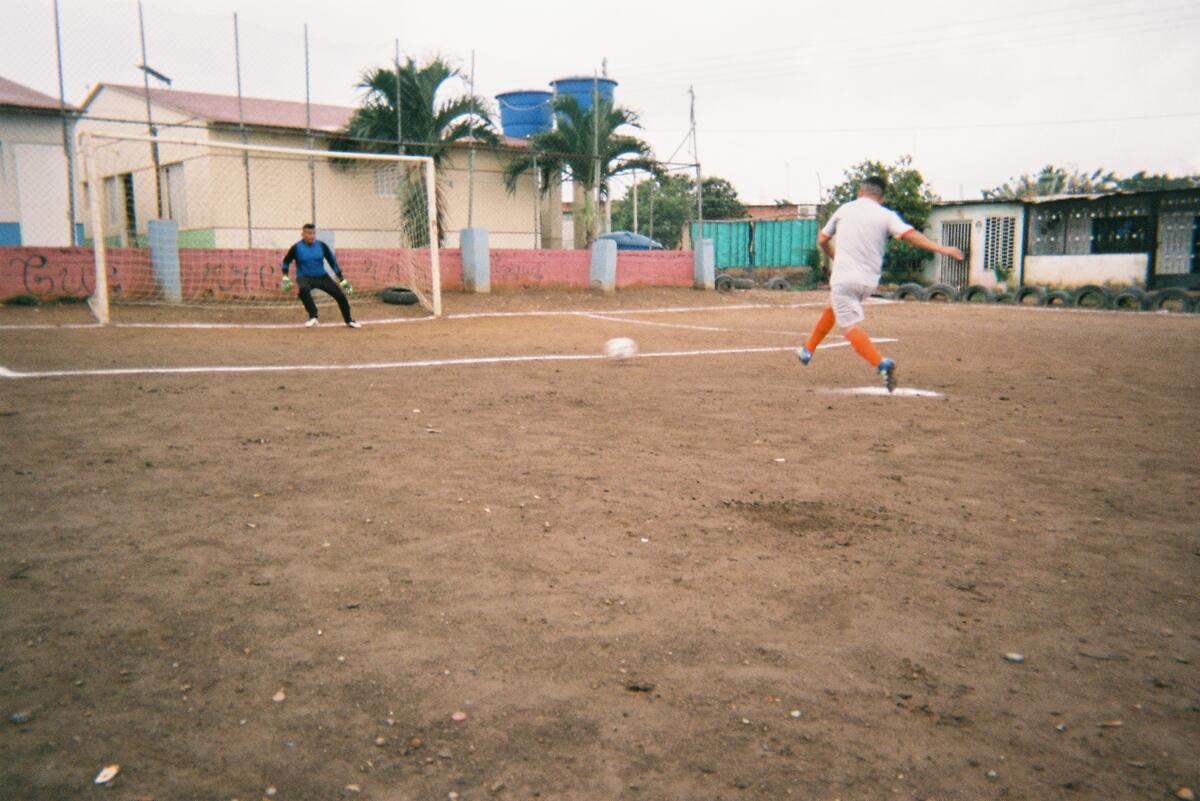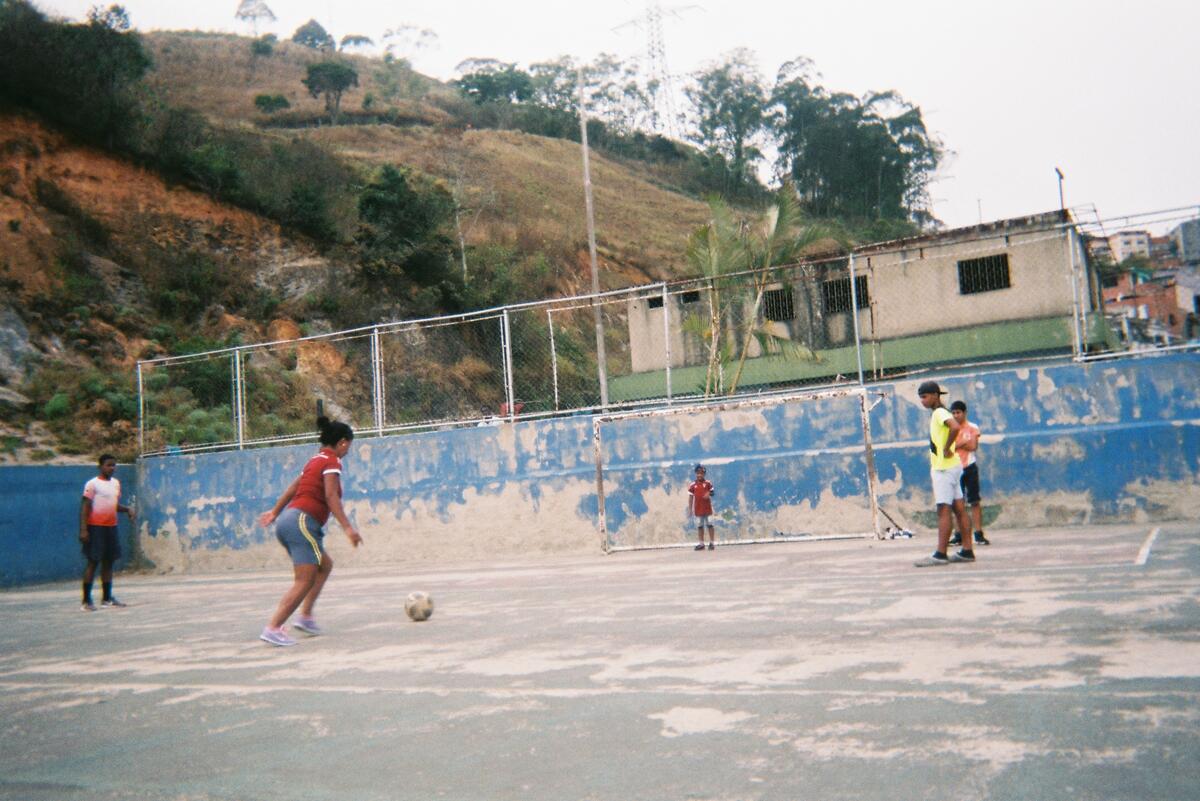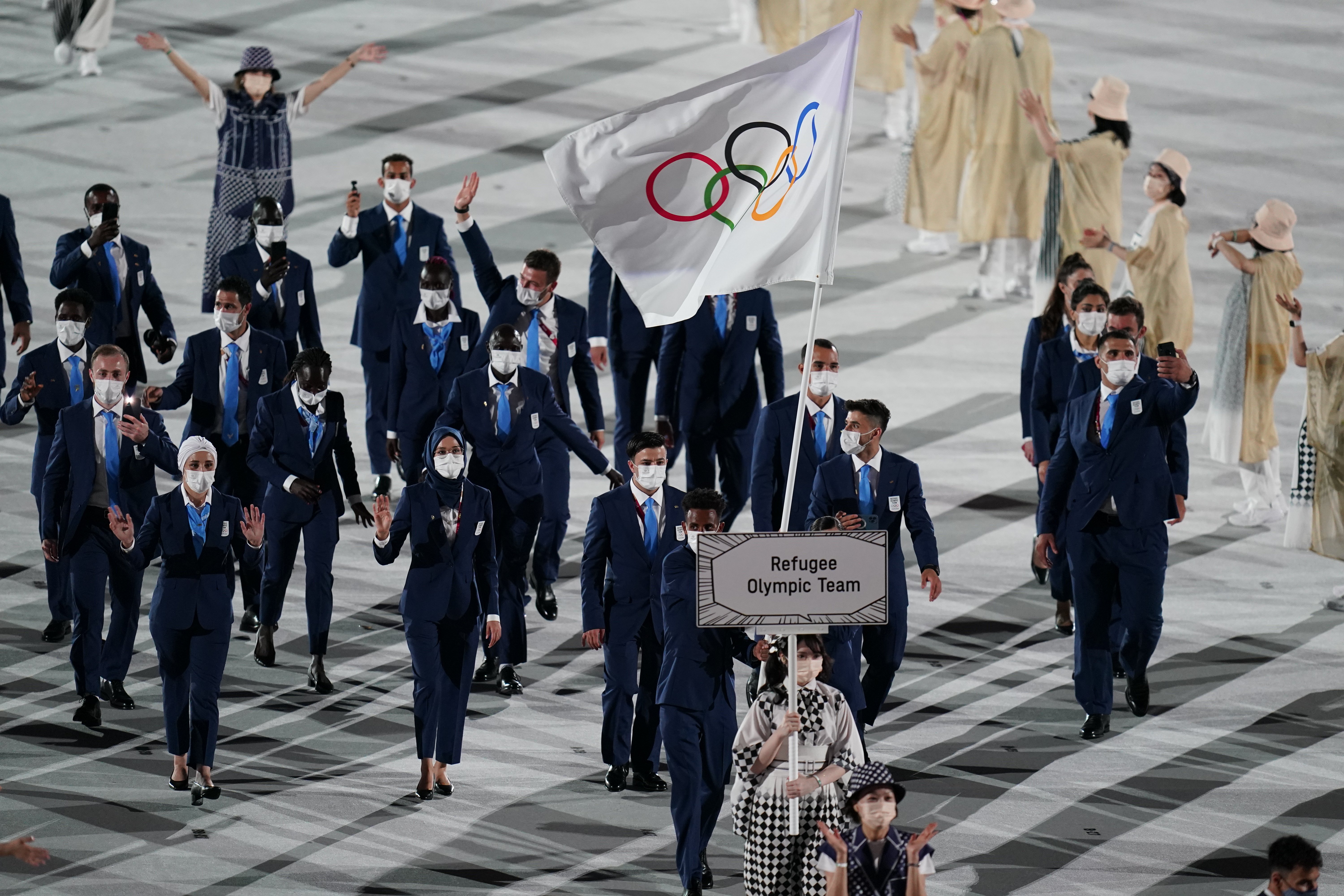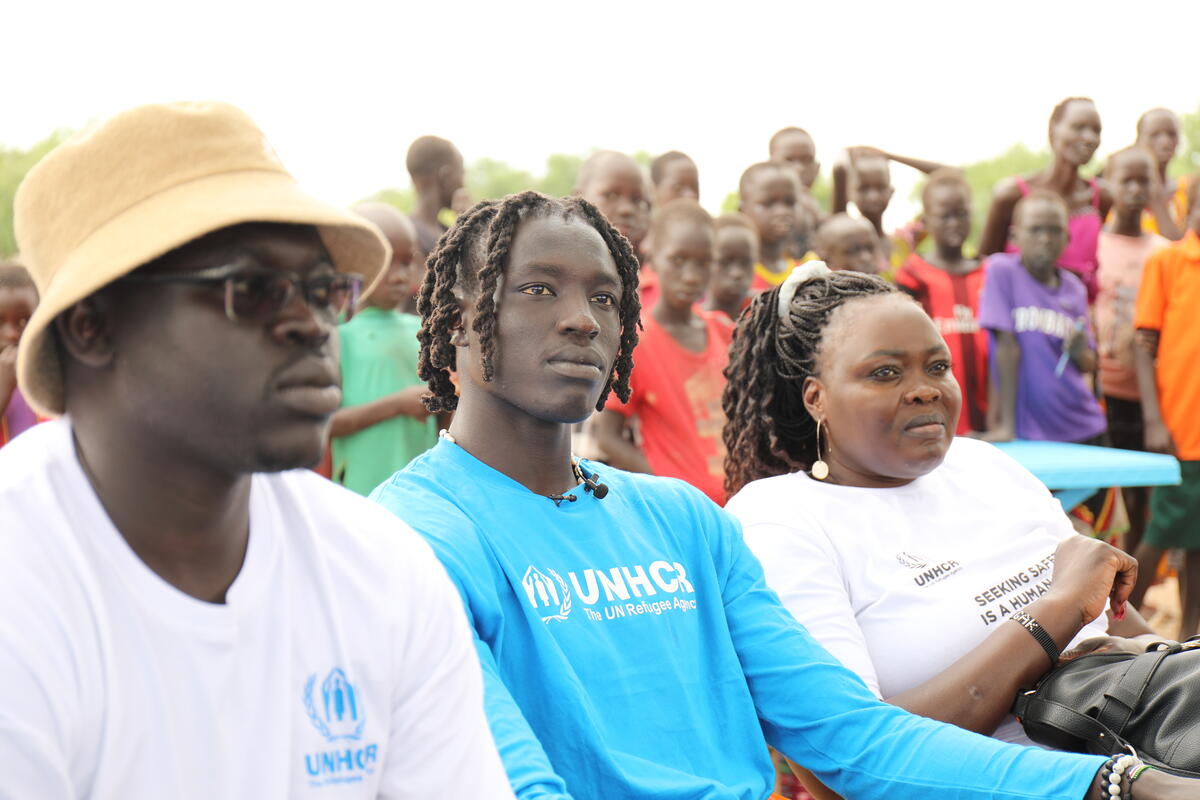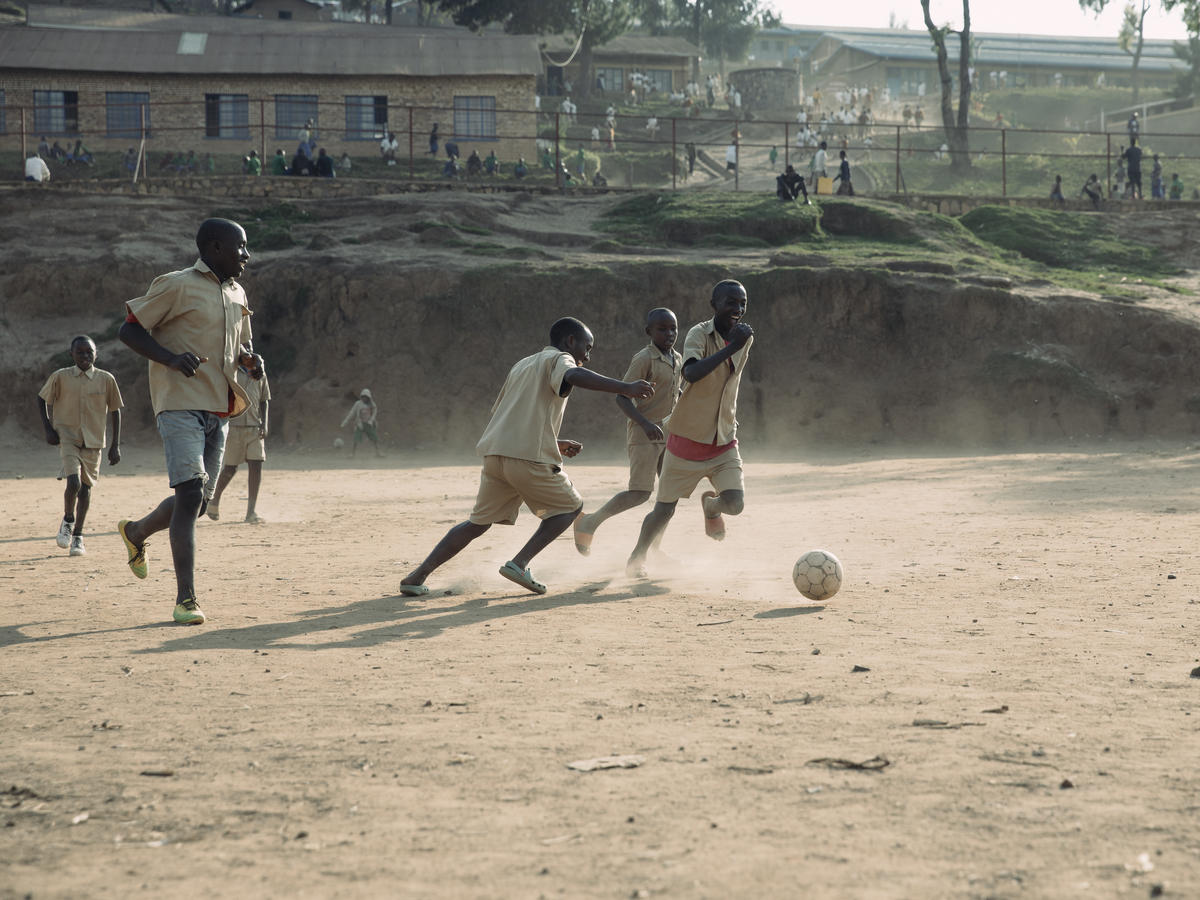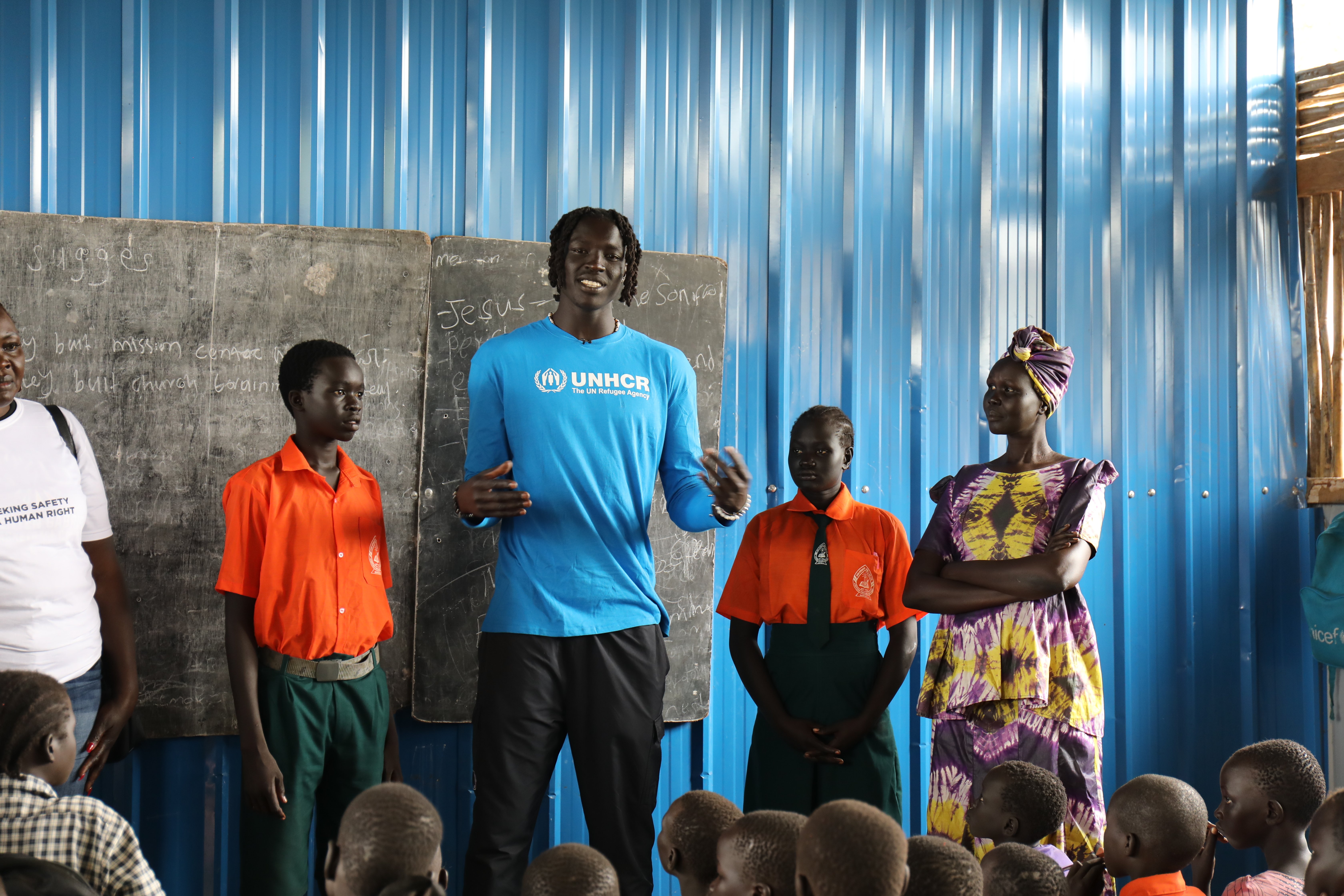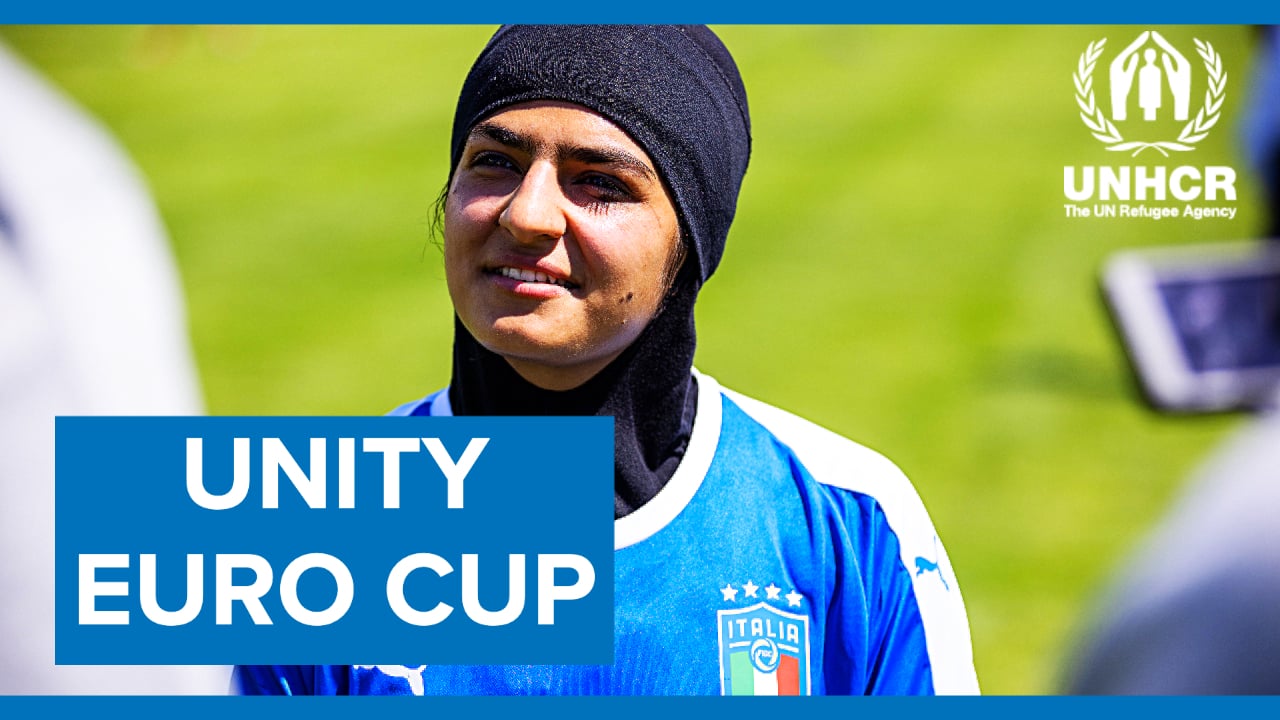Football brings refugees and host societies closer
Football brings refugees and host societies closer

POSTOJNA, Slovenia, July 7 (UNHCR) - There is nothing like football to break the ice and bring strangers together - as Gambian asylum seeker and soccer player, Jeremy*, is finding out. "Football can change cultures," Jeremy told visitors at a detention centre in the south-west Slovenian town of Postojna.
Jeremy was among a group of 24 Gambian footballers who sought asylum after taking part in a pre-season training camp in Slovenia eight months ago. The interior ministry rejected their applications earlier this year, but Jeremy and three others are in detention after staying on in a bid to fight deportation.
Slovenia's Supreme Court approved the deportations on Monday, sparking a public outcry. Soccer players, sports fans, journalists, academics and humanitarian workers have been agitating in support of the four. Their campaign yesterday received the support of Slovene President Janez Drnovsek.
Public interest in the case is in marked contrast to the small coverage given earlier this year to major changes to the country's asylum legislation. But journalists are now starting to question asylum procedures and the treatment of asylum seekers and refugees.
Jeremy and his colleague Tim* believe the World Cup, which wraps up on Sunday in Berlin with the final between France and Italy, has also helped win them public sympathy. "Domzale wants us to play for them. This is because African teams played so well in this world championship. We are more respected now," Tim said, referring to one of Slovenia's top football clubs.
In some other European countries, African soccer-playing refugees and asylum seekers have had more of a struggle to win acceptance. Gibril Deen, a Gambian who came to study in Hungary years ago, runs a Budapest team called African Stars. It is largely made up of refugees and asylum seekers.
"It was not easy in the beginning. Hungarians were very negative about Africans. They threw bananas on the pitch when a black player had the ball and sang the monkey song," said Deen, who set up the club in 1994.
But today, the African Stars are an accepted part of the Hungarian football scene and the team now includes players from all over the globe. More than 100 asylum seekers and refugees have played for the team, which will be heading off to Italy in a couple of weeks for the Anti-Racism World Cup.
Locals in the southern Slovakian town of Gabcikovo - home to one of the country's largest reception centres for asylum seekers - were also initially hostile to foreigners. But football and the World Cup have helped to bridge the gap between the local population and the asylum seekers.
The soccer-mad asylum seekers from Africa and Georgia set up a football team and soon found kindred spirits among the locals. A tournament was organised on June 20, World Refugee Day, between the asylum seekers, inhabitants of Gabcikovo and migration office staff. The Georgians even tried to get a local football coach to work with them.
Back in Slovenia, 19-year-old Serge Abanda owes his good fortune to football. "Real footballers do not see your colour, but your abilities," said the African soccer star, who arrived in the country two years ago after a dramatic flight from Cameroon.
With the help of a guardian he went through the asylum procedure and was granted humanitarian status. He started playing football for fun, but it was clear that he was a natural and his life began to change dramatically.
Serge plays as a professional for Domzale and feels completely integrated. "The other football players are my friends. I am one of them. They take me out and we have a good time. What counts most among us is football," he said, adding: "I found my peace here, and football helped me."
By Melita H. Sunjic in Postojna, Slovenia
* An assumed name


